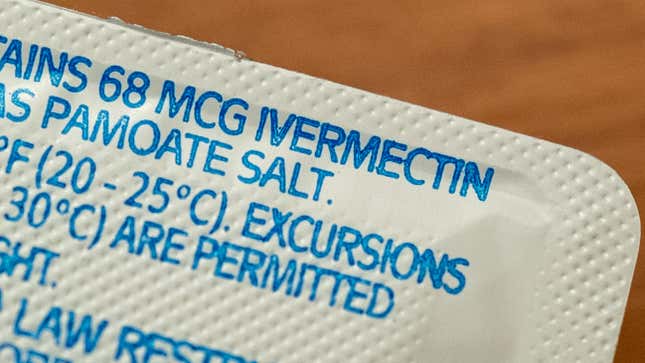
Researchers analyzing insurance claims data estimate that U.S. insurers have paid tens of millions of dollars for ivermectin as a covid-19 treatment, despite little good evidence that ivermectin does anything to treat or prevent the viral illness. During a single week in August 2021, private and Medicare insurance plans forked over about $2.5 million for covid-related prescriptions of ivermectin, according to the new study, published Thursday in JAMA.
Ivermectin is a cheap and effective antiparasitic that’s been in wide use for around 40 years. At the start of the pandemic, it was one of many existing drugs to receive a second look as a possible antiviral treatment for covid-19, based on early lab results. During the past two years, however, the field of covid-related research on ivermectin has been riddled with poor quality data and allegations of widespread fraud. There are still important ongoing studies of ivermectin for covid-19, but the largest and likely most rigorous trials to date have found no clear benefit for the drug in either treating or preventing covid-19.
This lack of solid evidence hasn’t stopped ivermectin from being adopted as the covid treatment of choice by some people and doctors. These devotees tend to be politically right-wing and espouse unsupported claims about the dangers of vaccines. They’re also, strangely enough, often dismissive about the pandemic, downplaying its harms even as they stock up on drugs like ivermectin to seemingly stay safe.
It’s clear that ivermectin use has risen during the pandemic, even in the U.S., where no public health authority has sanctioned or recommended it for covid-19. (India, for example, did make ivermectin widely available for treatment, though health authorities there have since stopped endorsing it, citing the lack of evidence.) But researchers at the University of Michigan Medical School and Boston University say that little is known about how much all this added and likely wasteful use has cost financially.
To remedy this, the team analyzed prescription claims from a de-identified database of over 6 million customers on either private insurance or Medicare Advantage plans. They specifically focused on claims made during the week of August 13, 2021, the most recent week when dispensing data was available. They then used this data to estimate how many people across the country on these plans were prescribed ivermectin for covid-19.
Based on the data, they estimated that almost 85,000 covid-related ivermectin prescriptions were doled out to Americans on private and Medicare Advantage plans that week—far above the average 3,600 prescriptions for parasitic illness dispensed weekly. Ivermectin has long since become generic, and out-of-pocket costs for customers were low, ranging from $22.48 on average for privately insured patients to $13.78 for Medicare Advantage patients. But the net total spending was still noticeable: a combined $2,493,716.
“Findings suggest that insurers heavily subsidized the costs of ivermectin prescriptions for covid-19, even though economic theory holds that insurers should not cover ineffective care,” the authors wrote in their paper.
Extrapolated to a whole year, the cost of covid-related ivermectin would have reached $129.7 million in 2021, the authors noted, though it’s not necessarily clear whether prescribing trends would have stayed the same the entire year. But it’s possible that this study is actually underestimating the financial toll, since they weren’t able to look at Medicaid spending. Some states also began to investigate doctors prescribing ivermectin last year, and this may have led patients to seek the drug elsewhere, particularly from animal feed stores. Assuming the yearly estimates are fairly accurate, it would eclipse other well-known forms of wasteful spending in medicine, the authors say, such as the use of unneeded imaging for lower back pain.
Given the amount of money spent on a covid-19 drug that probably doesn’t work, the authors conclude that insurers should look into restricting its use, such as by enacting a prior authorization policy. This would mandate that any prescription of the drug is flagged by the insurer and must be approved by them first.
“Although these restrictions might impede ivermectin use for non-covid-19 indications, low prepandemic levels of dispensing suggest this use is infrequent,” they wrote. “Consequently, the restrictions could reduce wasteful spending, and the number of patients who would experience barriers to evidence-based treatment for ivermectin would be small.”